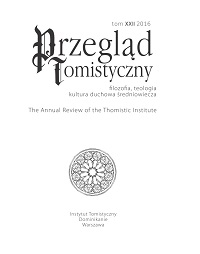PIOTR LICHACZ, Virtue Ethics in Search of a Decent Naturalism

Volume XXII: 2016
Philosophy — Theology— Spiritual Culture of the Middle Ages
ISSN 0860-0015
e-ISSN 2544-1000
SUMMARY
New possibilities of studying the activity of the human brain and new technologies of human enhancement have intensified the voices calling for more science in ethics. This often implies embracing a version of naturalism. The recent revival of virtue ethics seems to strengthen this trend and make it more promising. Joining together contemporary virtue ethics with naturalism, however, is highly problematic. In this paper, I reflect on several conditions for a happy pairing between virtue ethics and naturalism. In the first part, I mention Jonathan Haidt’s proposal as an example of such a promising and problematic couple and focus on only one element that could undesirably weaken virtue ethics. In the second part, I suggest how this element might be modified. This suggestion could also be beneficial to another general problem in contemporary naturalistic ethics, namely, its relation to religion. Scientifically-oriented authors love to denounce prejudices and presuppositions in what conservative ethicists say. These presuppositions are sometimes identified as religious. A scientific orientation, however, does not preclude anyone from other prejudices and presuppositions, including religious ones. I suggest that reading some religious texts might help in detecting such influences.
